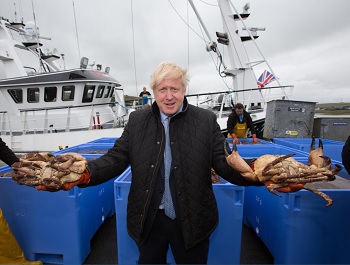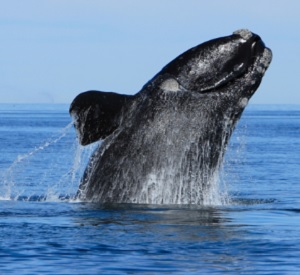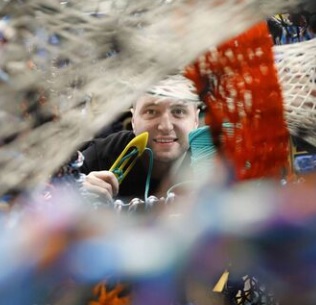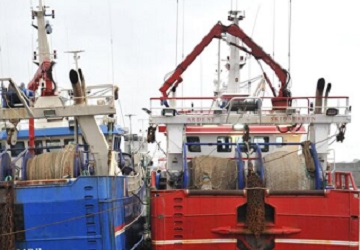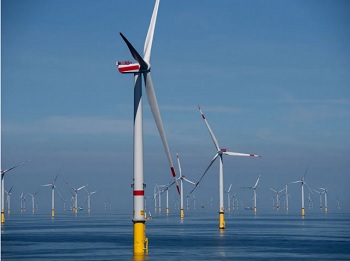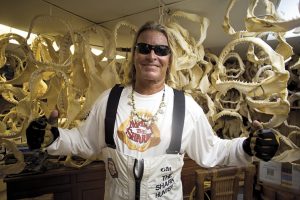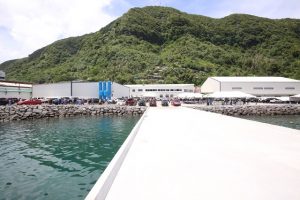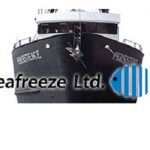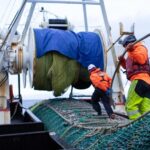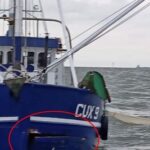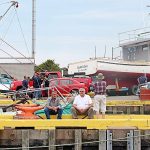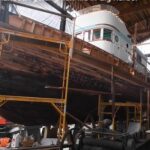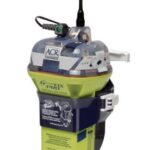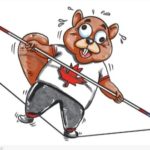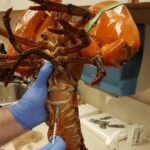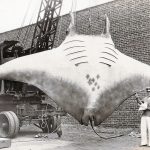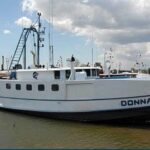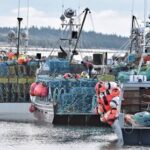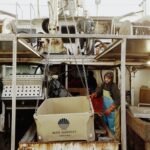Monthly Archives: February 2023
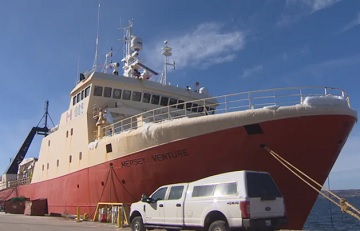
Ottawa signs new deal to charter fishing boats for science surveys
The agreement with the Atlantic Groundfish Council, which represents the region’s largest seafood companies, allows DFO to charter industry vessels for two to six weeks a year for fisheries or ecosystem surveys in Atlantic Canada. “We’ve been distressed in the fishing industry for two or three years now because DFO research vessel surveys were not getting done,’ said Bruce Chapman, president of the Atlantic Groundfish Council. DFO scientists returned last week from the first mission under the new charter agreement. It was a two-week survey on Georges Bank aboard the Mersey Venture, a 58-metre factory freezer trawler owned by Nova Scotia seafood company Mersey Seafoods. The Mersey Venture gathered data used by both Canada and the United States to jointly manage trans-boundary haddock, cod and yellowtail flounder stocks on the shared fishing grounds. Photos, >click to read< 17:35
Stop By and See Us at the 48th Maine Fishermen’s Forum
 48th Maine Fishermen’s Forum-2023 Seminar Short Listing (Times and Titles) Final: (Word) (PDF)-2023 Seminar Detailed Descriptions (PDF) Final: (Word) (PDF)-2023 Thursday Seminars and Events Schedule Final: (PDF)-2023 Friday Seminars and Events Schedule Final: (PDF)-2023 Saturday Seminars and Events Schedule Final: (PDF)-15:29
48th Maine Fishermen’s Forum-2023 Seminar Short Listing (Times and Titles) Final: (Word) (PDF)-2023 Seminar Detailed Descriptions (PDF) Final: (Word) (PDF)-2023 Thursday Seminars and Events Schedule Final: (PDF)-2023 Friday Seminars and Events Schedule Final: (PDF)-2023 Saturday Seminars and Events Schedule Final: (PDF)-15:29
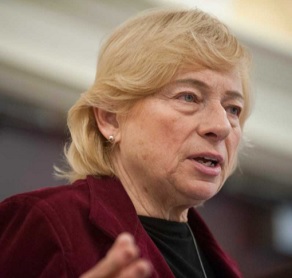
Many voices weigh in on offshore wind plan
Three days after Governor Janet Mills unveiled an offshore wind roadmap, a “comprehensive plan that offers detailed strategies” for offshore wind power in the Gulf of Maine, a handful of unconvinced citizens gathered at the Sustainable Maine Fishing Foundation Feb. 26 on Bar Harbor Road in Trenton. The idea was to inform lobstermen and interested people on offshore wind development before a Bureau of Ocean Energy Management (BOEM) presentation that opens the Fishermen’s Forum March 2 in Rockport, board member Ginny Olsen said. Energy operations consultant George Stover of Freeport, who has worked in the state’s energy industry for decades, discussed the Maine power grid and its energy sources and why, to his mind, offshore wind power is not a good fit or needed here. “If they continue down this road, it scares me,” he said. He is not alone. The idea of floating offshore wind installations in the Gulf of Maine has raised fears and concerns from environmentalists and fishermen alike. >click to read< 12:42

Maine lobster industry wages legal battle over recent regulations, while new ones remain frozen
The Maine Lobstermen’s Association in September appealed a ruling in a lawsuit against federal regulators in which a judge rejected the association’s attempt to block the National Marine Fisheries Service’s 10-year plan to reduce the risk posed by fishing gear to North Atlantic right whales. The animals risk injury or death when they become entangled in lines or gear. The case has been moving with relative speed through the court system, with oral arguments presented in the U.S. Court of Appeals in Washington, D.C., last week. The association argued that the National Marine Fisheries Service, part of the National Oceanic and Atmospheric Administration, failed to rely on the best scientific information available and did not account for the impact of conservation measures already adopted by the Maine lobster fishery. In effect, the lobstermen argue, the federal government placed its thumb on the scale in favor of the whales. >click to read< 10:56
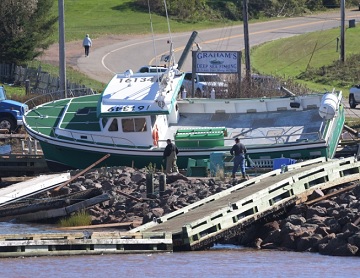
Fisheries Department scrambled to claw back ‘ill-timed’ lobster tweet during Fiona
Some people can’t see the forest for the trees. Others can’t see the hurricane for the lobsters. On Sept. 24, around 9 a.m. Atlantic time, a few hours after Hurricane Fiona had slowed slightly into a post-tropical cyclone and slammed into Nova Scotia, the federal Fisheries Department issued two preplanned posts on Twitter and Facebook. The first urged everyone to avoid the coastline and stay safe. The second warned them off helping themselves to wayward lobsters. “As well, if you find lobsters washed up on the shore after the storm, remember it is illegal to harvest them,” it read. “Simply leave them there.” >click to read< 10:17
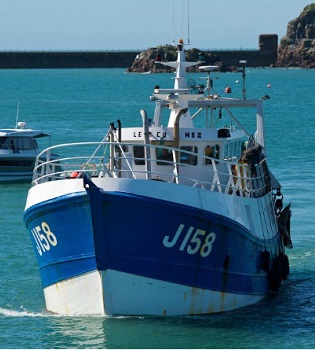
Salvors to Raise Trawler that Sank Following Deadly Collision off Jersey
The wreckage of the trawler L’Ecume II, which sank in Jersey waters on December 8, 2022 following a collision with a commercial cargo vessel, is to be raised for evidential and humanitarian reasons, the Jersey government confirmed via an official statement. The States of Jersey Police made the recommendation to raise the wreck as it may assist in both the forensic and overall investigation. The collision involving L’Ecume II and the Condor Ferries Ro-Ro Commodore Goodwill occurred at 05:30 local time on December 8. The trawler sank shortly afterwards with its crew of three still on board. Search and rescue/recovery teams pulled the bodies of Filipino crewmen Jervis Baligat and Larry Simyunn out of the water in the days following the sinking. No trace of Micheal Michieli, the boat’s captain, has yet been found. >click to read< 09:07
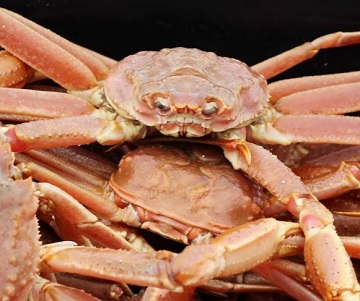
N.L. snow crab population remains healthy, though market uncertainty persists
Newfoundland and Labrador’s most valuable fishery may be encountering rough market conditions, and the economic outlook for this year is bleak, but an assessment reveals that snow crab stocks remain strong, a few years after nearly collapsing. “We’ve seen an increase in the last few years in exploitable biomass,” Five years ago, alarm bells were sounding as the biomass shrank to historic lows, resulting in steep quota cuts for commercial harvesters and worries the industry would collapse. Landings hit a 25-year low in 2019. But now industry leaders sound much more upbeat about the health of the stocks. >click to read< 17:27
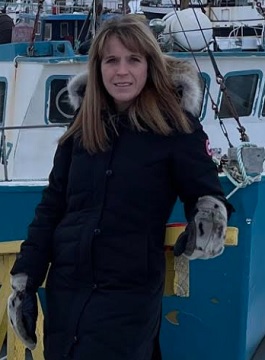
SEA-NL elects new President, first woman leader of fisheries organization in province’s history
Fortune-based inshore enterprise owner Pamela Patten has been elected President of Seaward Enterprises Association of Newfoundland and Labrador (SEA-NL), believed to be the first woman to lead a fisheries organization in the province’s history. “As a woman I will obviously bring a slightly different perspective to the table, but my role will be to unite owner-operators around the province regardless of fleet or gender,” says Patten, who runs the Bradley Venture, a 39’11 longliner that primarily fishes snow crab and lobster. >click to read< 14:22
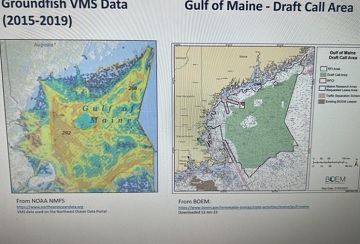
Gloucester webinar tackles concerns about wind farm projects
At the nascent stage of wind farm development in the Gulf of Maine, a webinar last week looked at the possible impacts to marine life, coastal communities and fisheries while acknowledging there are many unknowns to such projects. Capt. Al Cottone, a commercial fisherman and executive director of the Gloucester Fisheries Commission, said the industry has “a ton of questions that haven’t been answered yet. And I don’t think these questions will be answered in the time frame that was shown earlier in the presentation and it’s very concerning to the industry.” “We are very concerned about the displacement of vessels,” Cottone said. “Once you start losing access to fishing grounds, it puts a lot of pressure on other fishing grounds.” >click to read< 12:28

Fishermen at Pillar Point hold fast for better days
Captain Mike Burian, who fishes under the vessel, Prime Time out of Pillar Point Harbor, bought a boat last year when it sounded like a good deal; however, his dream of running a profitable crabbing and salmon boat quickly turned into a nightmare after multiple delays in the season and various obstacles made it increasingly difficult to turn a profit. “I always wanted to do this and someone was selling the vessel, pods and permits and I thought it was a good idea at the time,” Burian said. “If I did well, I was going to do it full time and fish for salmon as well; but, at this time, there is no way to make a living with this as far as I can see.” >click to read< 08:47
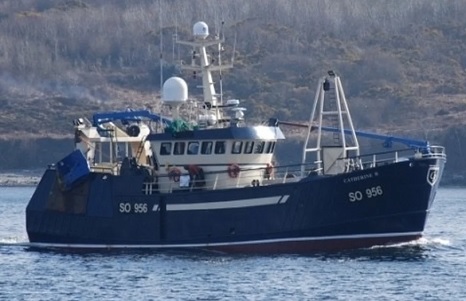
Trawlers scrapped over quotas ‘end a lifetime of fishing’
Work on scrapping a number of Irish fishing vessels is under way in an effort to rebalance fish quotas following post-Brexit agreements. The Catherine R is among the first vessels to be decommissioned. She was a steel trawler built in 2005 and fishing from the port of Greencastle in Co Donegal. Her owner Cara Rawdon has been fishing for 46 years. He said that he chose to accept to decommission his fishing boat,,, On seeing his ship being ripped apart for the scrap heap, he said: “It’s like seeing your home being torn apart. I saved the money to buy her and make her safe for the crew. It was a very difficult decision because not only had I to decide my own future I also had to think of my crew. It’s a very hard decision to make to end a lifetime of fishing.” >click to read< 07:51
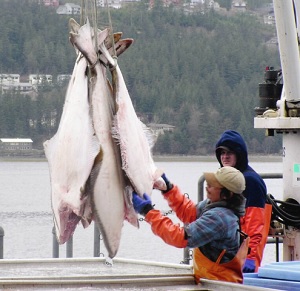
Halibut treaty marked new era in Canadian independence
On March 10, the 2023 wild Pacific halibut fishing season opens. Fishers licensed accordingly will be able to harvest the white-fleshed groundfish from Bering Strait to California until early December. That there is a halibut season at all on this coast is due to an agreement signed a century ago between the U.S. and Canada. The 1923 Convention between Canada and the United States of America for the Preservation of the Pacific Halibut Fishery of the Northern Pacific Ocean and Bering Sea, also known as the Halibut Treaty of 1923, is the first environmental treaty designed to conserve ocean stocks of a fish. It is also the first treaty the Canadian government negotiated and signed independently. >click to read< 12:43
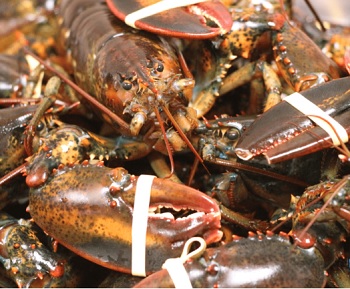
Vietnamese favor Canadian lobsters, snow crabs
Vietnam spent US$65 million importing Canadian seafood, mainly lobsters and snow cabs last year, doubling 2021 imports and trebling 2020. Among Southeast Asian countries, Vietnam was Canadian’s biggest seafood importer, Steve Craig, Minister of the Department of Fisheries and Aquaculture of the Canadian province of Nova Scotia, said at a recent business networking event in HCMC. Although Vietnam is the world’s fourth largest seafood exporter with an annual turnover of $11 billion, it is still a fertile ground for Canadian products, he said, noting that Vietnamese are among the world’s top seafood consumers. >click to read< 11:47
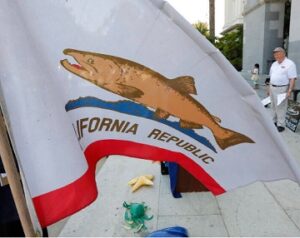
Editorial: State orders will harm salmon fisheries
During recent droughts, low river flows and warm water have proved to be a lethal combination for salmon and other fish in the Sacramento River and its tributaries. State waivers of water quality regulations in six of the past 10 years didn’t help beleaguered fisheries. January’s drenching rains dramatically improved river conditions across the state, raising hopes for winter run chinook salmon. But the storms also generated a cascade of complaints about water being “wasted.” In other words, storm runoff flowed through the Sacramento-San Joaquin Delta and into the Pacific Ocean. Gov. Gavin Newsom responded by suspending environmental regulations so more water is available this summer for Central Valley agriculture, a decision affirmed last week by the state Water Resources Control Board. >click to read< 09:56

NOAA and BOEM; Ignorance is Bliss. By Jim Lovgren
For about twenty years the Natural Resources Defense Council [NRDC] engaged the US Navy in a legal battle over the effects of the Navy’s use of Mid Frequency Sonar in training exercises and its impact on marine mammals and other creatures, with one case even reaching the US Supreme court. While there are many different aspects of NRDC’s legal actions, the results of the litigation have produced an enormous amount of scientific data and research regarding the effects of underwater sound on marine creatures, with an emphasis on Sonar and marine mammals. They forced the Navy to admit that their use of sonar had resulted in the unintentional mass strandings of many different marine Mammals in a dozen different instances around the world, primarily involving Beaked whales, that are classified as being low to mid frequency cetaceans. >click to read< 08:48
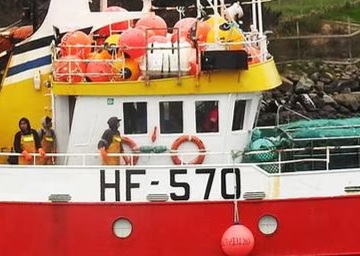
German vessel’s skipper lands in court on fishing charges
The skipper of a German-registered fishing trawler is due to appear at Cork Circuit Criminal Court this week to face 25 charges of breaches of fishing regulations off the West Cork coast. Ramon Manuel Nova Martinez (57) of Corosopalmeira, Riberia, La Coruna, Spain appeared at a special sitting of Bandon District Court on Monday after his vessel Ortegal Tres, was detained by Irish authorities. Mr Martinez was charged with 17 offences for allowing his fishing nets exceed the soak time of 72 hours in respect of static gear, while he was also charged with four offences for failing to accurately record soak times as well as four charges of failing to record the depth of the catch. >click to read< 07:43
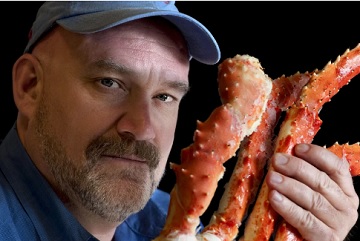
Deadliest Catch Got Us All Fooled with Faking a Storm, and Nobody Noticed
A reality TV show is supposed to show us, well, reality. After all, it is in the name. But when actual events fail to be sufficiently exciting to the audience, creative editing of footage may come to the rescue. Take, for example, Deadliest Catch on the Discovery channel. Deadliest Catch is a long-running reality show, currently 18 seasons have been made. The name is half-misleading. But on the other hand, being a fisherman in a crab fishing boat on the Bering Sea is one of the most dangerous jobs in the world thanks to the severe weather conditions, including frigid gales, rough waves, ice floating around the boat and forming on it, as well as to the need to operate heavy machinery on the rolling boat deck. >click to read< 11:31
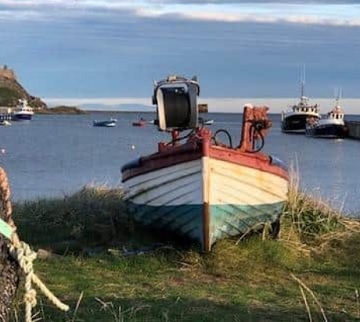
Holy Island fishing ban set to be dropped after outcry
The government had been exploring designating it a Highly Protected Marine Area (HPMA), which would have seen fishing halted. But fears were voiced it would devastate the local economy. The Department for Environment, Food and Rural Affairs (Defra) said it would designate its first English HPMA later this year. Berwick MP Anne-Marie Trevelyan tweeted a copy of a letter she received from Environment Secretary Therese Coffey stating her department would not designate Lindisfarne (Holy Island) an HPMA. Local fishermen warned they were worried about the future and in September local councillors said pressing ahead with the proposal would turn the area into a “museum”. >click to read< 08:37

Federal court hears arguments from Maine lobstermen appealing right whale regulations
A federal appeals court heard arguments Friday from the Maine Lobstermen’s Association, which is challenging a government plan to regulate the fishery and conserve endangered right whales. The Maine Lobstermen’s Association had promised to take its latest appeal of federal fishing regulations all the way to the U.S. Supreme Court, if necessary. But lobstermen hope they’ll avoid that prospect, especially with Paul Clement, an attorney with more than 100 past Supreme Court appearances, representing Maine. >click to read< 07:22
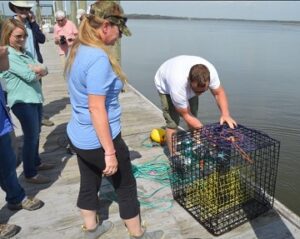
Black Sea Bass fishing return
Locally caught black sea bass may be back on the menu in the Golden Isles from November through April during calving season for North Atlantic right whales. The Georgia Conservancy has spent the past two years in a research project funded by UGA Marine Extension Service and Georgia Sea Grant to study the innovation of on-demand traps in an effort to eliminate the threat of fishing gear entanglement of the whales. Black sea bass fishing off the Georgia coast has been banned during calving season for more than a decade to help protect the whales. >click to read< 15:24
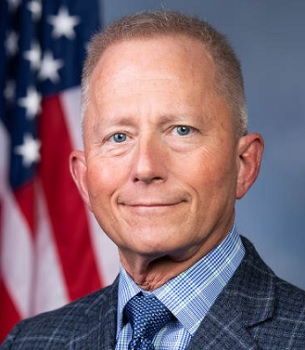
New Jersey Congressman Wants a Moratorium on Offshore Wind Projects as State Seeks Leading Role
Republican Congressman from New Jersey Jeff Van Drew has announced plans to hold a local hearing on offshore wind projects along with plans to introduce legislation seeking to put a stop to offshore wind development, a key component of the Biden Administration’s efforts to expand renewable energy production to combat climate change. If Congressman Van Drew gets his way, he will put a stop to it. This month, he announced plans to introduce legislation that would place a moratorium on all existing offshore wind projects, as well prohibit all future projects. “The unknown impacts of these offshore wind projects raises serious concerns, especially after 18 whales have washed ashore near where surveying is taking place along the East Coast, six of which have been in New Jersey,” said Congressman Van Drew. >click to read< 12:31
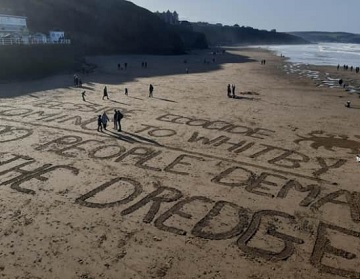
‘It’s a shocker’ – Fishermen stage demonstration in Whitby to raise awareness of shellfish deaths on Yorkshire and North East coast
On Thursday, February 23, around 100 fishermen, environmental activists, and local business owners gathered in Whitby to raise awareness of thousands of dead crustaceans that have been washing up on the Yorkshire and North East coast since 2021. The demonstration included a lively march through Whitby with music and drums as well as beach art and speeches. Local fishermen have said that their livelihoods are at risk due to significantly reduced catches which they blame on dredging in the Tees, and have called on the Government for further testing. >click to read< 11:41
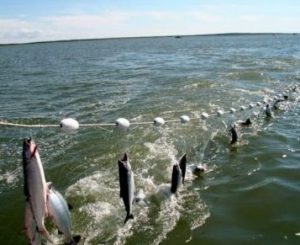
Bristol Bay drift gillnetters face boat inspection
Bristol Bay commercial salmon drift gillnet permit holders have been advised by the Alaska Wildlife Troopers of upcoming inspections during the summer fishery to determine whether participating vessels are adhering to current vessel length regulations and if crews are fishing legally. Ongoing efforts by some participants in this fishery to amend current regulations to allow innovations that give them a harvesting advantage have yet to be approved by the Alaska Board of Fisheries, and no more proposals will be considered by the board before that season begins. Current state fisheries regulations limit drift gillnetters to 32 feet in overall length with few exceptions, which were carefully identified in a letter sent to every gillnet permit holder in the Bristol Bay fishery. >click to read< 09:27
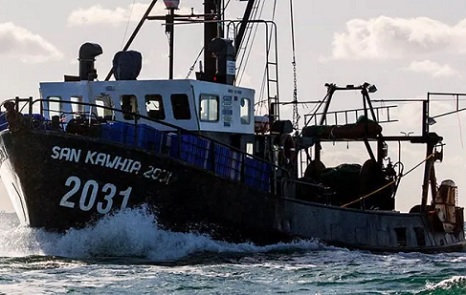
Cawthron boss told he should have expressed himself better
Cawthron Institute chief executive Volker Kuntzsch was expressing his personal opinion when he told an industry symposium that New Zealand had no future without fishing, the institute’s chair says. “I don’t think he’s expressed them in the way that he should have expressed them,” says Meg Matthews. “I think he was challenging the status quo. I think he was hoping to shift mindsets.” It comes amid concerns from academic leaders and environmental groups that Kuntzsch has undermined the independence and scientific credibility of the institute, with his claims about the sustainability of the seafood industry, and his criticism of the carbon emissions of farming and plant-based protein. >click to read< 19:24






